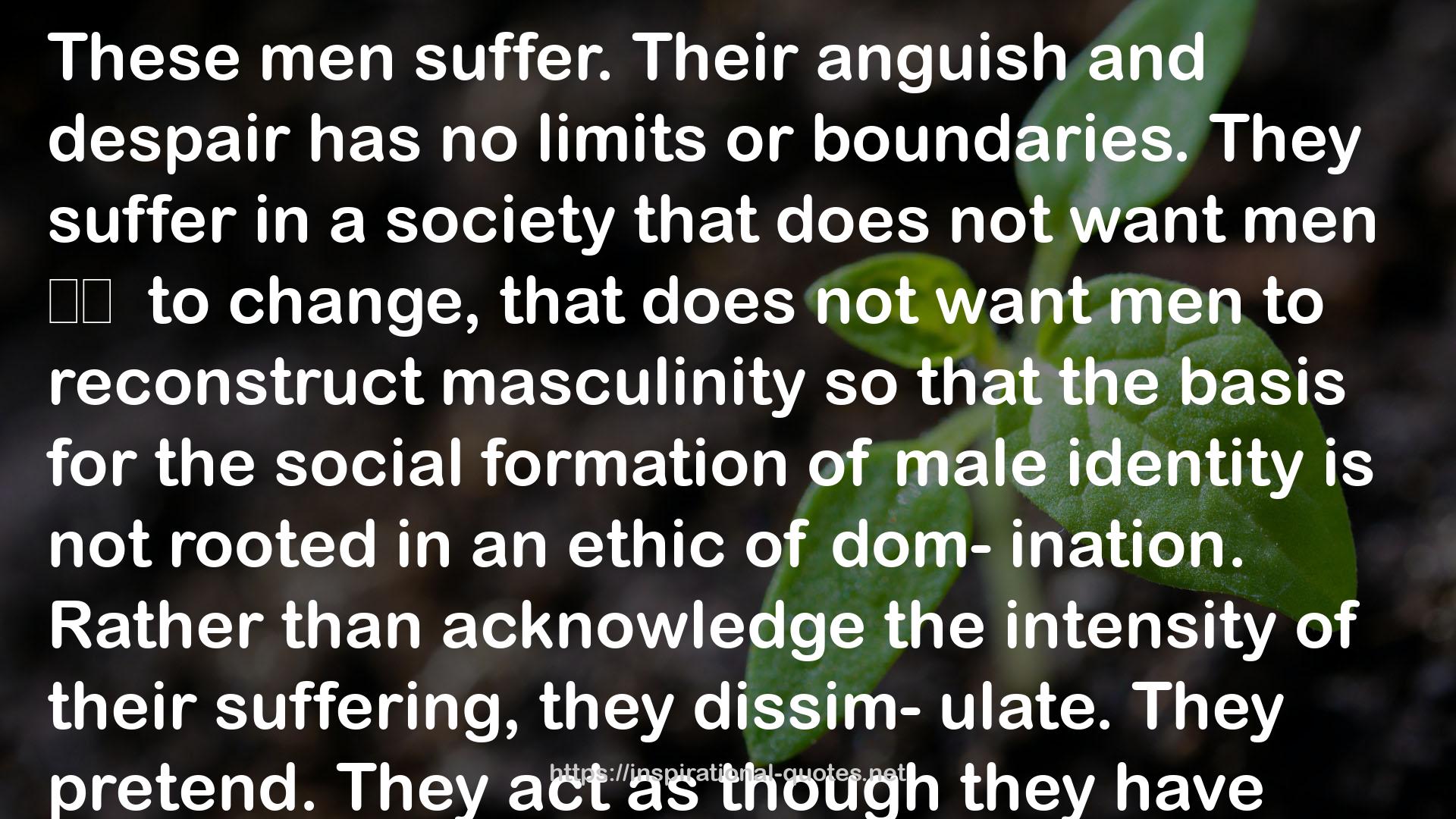" These men suffer. Their anguish and despair has no limits or boundaries. They suffer in a society that does not want men
��
to change, that does not want men to reconstruct masculinity so that the basis for the social formation of male identity is not rooted in an ethic of dom- ination. Rather than acknowledge the intensity of their suffering, they dissim- ulate. They pretend. They act as though they have power and privilege when they feel powerless. Inability to acknowledge the depths of male pain makes it difficult for males to challenge and change patriarchal masculinity.
Broken emotional bonds with mothers and fathers, the traumas of emo- tional neglect and abandonment that so many males have experienced and been unable to name, have damaged and wounded the spirits of men. Many men are unable to speak their suffering. Like women, those who suffer the most cling to the very agents of their suffering, refusing to resist sexism or sexist oppression. Their refusal is rooted in the fear that their weakness will be exposed. They fear acknowledging the depths of their pain. As their pain intensifies, so does their need to do violence, to coercively dominate and abuse others. Barbara Deming explains: “I think the reason that men are so very violent is that they know, deep in themselves, that they’re acting a lie, and so they’re furious. You can’t be happy living a lie, and so they’re furious at being caught in the lie. But they don’t know how to break out of it, so they just go further into it.” For many men the moment of violent connection may be the only intimacy, the only attainable closeness, the only space where the agony is released. When feminist women insist that all men are powerful op- pressors who victimize from the location of power, they obscure the reality that many victimize from the location of victimization. The violence they do to others is usually a mirroring of the violence enacted upon and within the self. "
― , The Will to Change: Men, Masculinity, and Love
